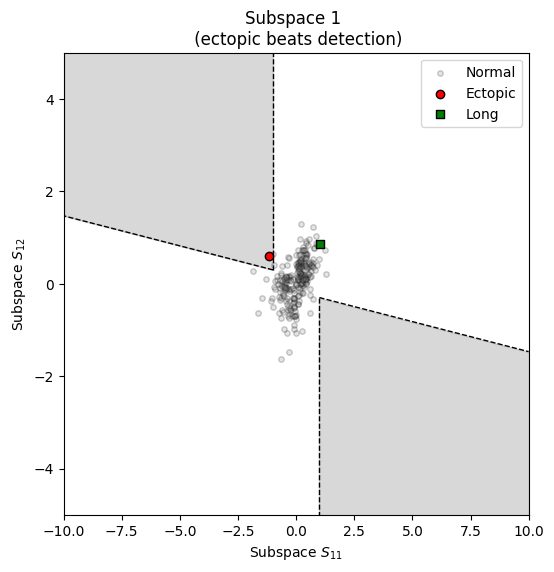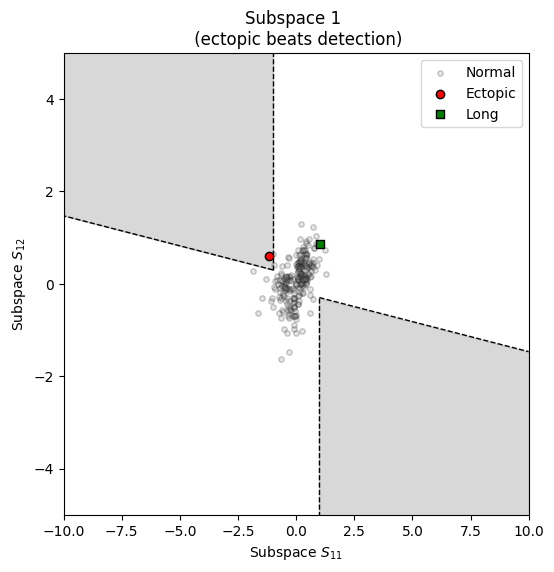systole.plots.plot_ectopic#
- systole.plots.plot_ectopic(rr: None, artefacts: Dict[str, ndarray], input_type: str = 'rr_ms') Union[figure, Axes][source]#
- systole.plots.plot_ectopic(rr: Union[List[float], ndarray], artefacts: None, input_type: str = 'rr_ms') Union[figure, Axes]
- systole.plots.plot_ectopic(rr: Union[List[float], ndarray], artefacts: Dict[str, ndarray], input_type: str = 'rr_ms') Union[figure, Axes]
Visualization of ectopic beats detection.
The artefact detection is based on the method described in [1].
- Parameters
- rr
Interval time-series (R-R, beat-to-beat…), in miliseconds.
- artefacts
The artefacts detected using
systole.detection.rr_artefacts().- input_type
The type of input vector. Default is “rr_ms” for vectors of RR intervals, or interbeat intervals (IBI), expressed in milliseconds. Can also be “peaks” (a boolean vector where 1 represents the occurrence of R waves or systolic peaks) or “rr_s” for IBI expressed in seconds.
- ax
Where to draw the plot. Default is None (create a new figure). Only applies when backend=”matplotlib”.
- backend
Select plotting backend (“matplotlib” or “bokeh”. Defaults to “matplotlib”.
- figsize
Figure size. Default is (13, 5) for Matplotlib backend, and the height is 600 when using Bokeh backend.
- Returns
- plot
The matplotlib axes, or the boken figure containing the plot.
See also
Notes
If both rr and artefacts are provided, the function will drop artefacts and re-evaluate given the current RR time-series.
References
- 1
Lipponen, J. A., & Tarvainen, M. P. (2019). A robust algorithm for heart rate variability time series artefact correction using novel beat classification. Journal of Medical Engineering & Technology, 43(3), 173–181. https://doi.org/10.1080/03091902.2019.1640306
Examples
Visualizing ectopic subspace from RR time series.
from systole import import_rr from systole.plots import plot_ectopic # Import PPG recording as numpy array rr = import_rr().rr.to_numpy() plot_ectopic(rr, input_type="rr_ms")
<Axes: title={'center': 'Subspace 1 \n (ectopic beats detection)'}, xlabel='Subspace $S_{11}$', ylabel='Subspace $S_{12}$'>
Visualizing ectopic subspace from the artefact dictionary generated by
systole.detection.rr_artefacts().from systole.detection import rr_artefacts # Use the rr_artefacts function to find ectopic beats artefacts = rr_artefacts(rr) plot_ectopic(artefacts=artefacts)
<Axes: title={'center': 'Subspace 1 \n (ectopic beats detection)'}, xlabel='Subspace $S_{11}$', ylabel='Subspace $S_{12}$'>
Using Bokeh as plotting backend.